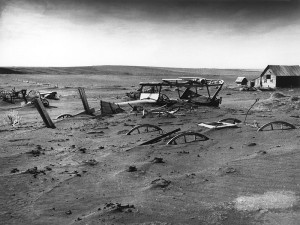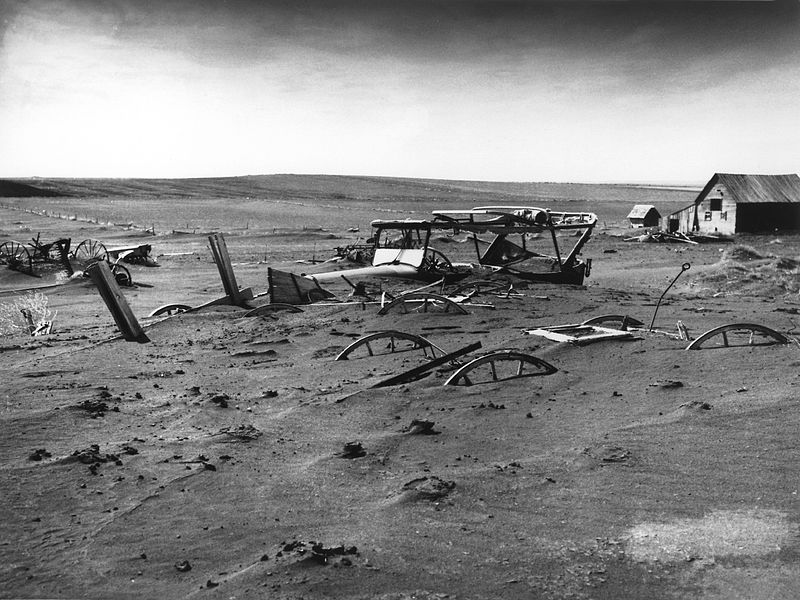
Rhode Island should be honored that we’ve got a resident who helped Ken Burns put together his awesome new documentary “The Dust Bowl.”
Jim Pontarelli, reports the Associated Press, became familiar with the Library of Congress’ collection of Dust Bowl photographs when he worked for John Chafee. So when Burns got to work he tapped the Narragansett resident and RIC grad school student to help him curate.
The Dust Bowl is one of the greatest lessons in moderation any society could ever study – we over-farmed so quickly we caused a natural disaster that lasted a full decade and caused an economic collapse in the lower plains, which land barons further west were more than happy to exploit. For more on this, see John Steinbeck’s epic working class classic “The Grapes of Wrath” or some of the songs Woody Guthrie wrote about the plight of the midwestern family farmers.
There are plenty of people still alive who lived through the Dust Bowl, such as Bill Wallace Forester of Ashland, Oregon.
In case you missed Burns’ latest project, you can still watch it here, or below. In case you aren’t familiar with it, this is how PBS describes the four-hour documentary:
The Dust Bowl chronicles the worst man-made ecological disaster in American history, in which the frenzied wheat boom of the “Great Plow-Up,” followed by a decade-long drought during the 1930s nearly swept away the breadbasket of the nation. Vivid interviews with twenty-six survivors of those hard times, combined with dramatic photographs and seldom seen movie footage, bring to life stories of incredible human suffering and equally incredible human perseverance. It is also a morality tale about our relationship to the land that sustains us—a lesson we ignore at our peril.
Watch Episode 1: The Great Plow-Up on PBS. See more from The Dust Bowl.
Watch Episode 2: Reaping the Whirlwind on PBS. See more from The Dust Bowl.

